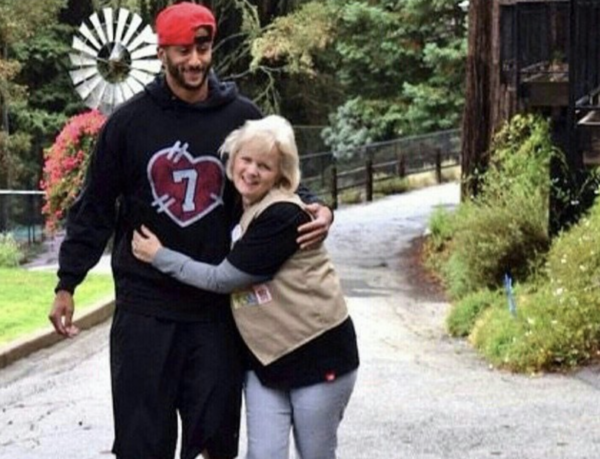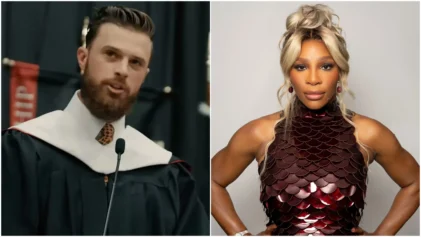Colin Kaepernick has more to say about the struggles he encountered while trying to embrace his culture during his childhood. The former NFL pro was adopted by a white couple, Rick and Teresa Kaepernick, when he was 5 weeks old. They also have two biological children.
Some of the challenges he faced while growing up in Turlock, California, which is a predominantly white farmland region, were re-enacted in Netflix’s “Colin in Black & White,” a series Colin co-created with Ava DuVernay.

In a new interview promoting his graphic novel memoir, “Colin Kaepernick: Change the Game,” he reiterated that his parents’ sometimes tone deaf approach to his Blackness perpetuated negative stereotypes about Black people.
“I know my parents loved me, but there were still very problematic things that I went through,” said the former San Francisco 49ers quarterback during a March 9 appearance on “CBS Mornings.”
His memoir takes another look at some of the instances where his culture and that of his parents clashed. “I think it was important to show that no, this can happen in your own home and how we move forward collectively while addressing the racism that is being perpetuated,” said the new father.
Colin, who is mixed race, and his longtime girlfriend, Nessa Dian, welcomed their first child together in August last year. The private couple has yet to share the little one’s name, but did disclose that the baby girl is an amazing addition to the family.
The activist further explained that, as a high school student, his hair was a point of contention. After witnessing Allen Iverson’s style on the court, Colin said he was inspired to get his hair cornrowed. His mother’s reaction was the opposite of accepting.
He recalled her saying, “Oh, your hair’s not professional” and “You look like a little thug.” In the Netflix series, Colin said that growing up he “moved through life with their audacity of whiteness. I assumed their privilege was mine,” though he learned otherwise.
The 35-year-old has not played professional football since 2016, when he sparked outrage over his silent protest against injustice by kneeling during pregame performances of the national anthem. Although years have past since he donned a league jersey, he said he still trains in hopes that one day he may get a chance to play.

